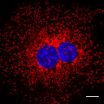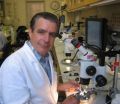(Press-News.org) Use of electronic health records by hospitals across the United States has had only a limited effect on improving the quality of medical care, according to a new RAND Corporation study.
Studying a wide mix of hospitals nationally, researchers found that hospitals with basic electronic health records demonstrated a significantly higher increase in quality of care for patients being treated for heart failure.
However, similar gains were not noted among hospitals that upgraded to advanced electronic health records, and hospitals with electronic health records did not have higher quality care among patients treated for heart attack or pneumonia.
The findings, published online by the American Journal of Managed Care, are part of a growing body of evidence suggesting that new methods should be developed to measure the impact of health information technology on the quality of hospital care.
"The lurking question has been whether we are examining the right measures to truly test the effectiveness of health information technology," said Spencer S. Jones, the study's lead author and an information scientist at RAND, a nonprofit research organization. "Our existing tools are probably not the ones we need going forward to adequately track the nation's investment in health information technology."
Use of electronic health records is growing rapidly among U.S. hospitals, spurred by a major federal investment in the technology. Legislation approved in 2009 may eventually provide as much as $30 billion in federal aid to hospitals that invest in electronic health records.
One expected benefit of electronic health records is improved quality of care. But most of the current knowledge about the relationship between health information technology and quality comes from a few hospitals that may not be representative, such as large teaching hospitals or hospitals that were among the first to adopt electronic health records.
The RAND study is one of the first to look at a broad set of hospitals to examine the impact that adopting electronic health records has had on the quality of care.
The study included 2,021 hospitals -- about half of the nonfederal acute care hospitals nationally. Researchers determined whether each hospital had electronic health records and then examined performance across 17 measures of quality for three common illnesses -- heart failure, heart attack and pneumonia. The period studied spanned 2003 to 2007.
The number of hospitals using either a basic or advanced electronic health records rose sharply during the period, from 24 percent in 2003 to nearly 38 percent in 2006.
Researchers found that the quality of care provided for the three illnesses generally improved among all types of hospitals studied from 2004 to 2007. The largest increase in quality was seen among patients treated for heart failure at hospitals that maintained basic electronic health records throughout the study period.
However, quality scores improved no faster at hospitals that had newly adopted a basic electronic health record than in hospitals that did not adopt the technology. In addition, at hospitals with newly adopted advanced electronic health records, quality scores for heart attack and heart failure improved significantly less than at hospitals that did not have electronic health records. Electronic health records had no impact on the quality of care for patients treated for pneumonia.
Researchers say the mixed results may be attributable to the complex nature of health care. Focusing attention on adopting electronic health records may divert staff from focusing on other quality improvement efforts. In addition, performance on existing hospital quality measures may be reaching a ceiling where further improvements in quality are unlikely.
New performance measures that focus on areas where electronic health records are expected to improve care should be developed and tested, according to researchers. For example, electronic health records are expected to lower the risk of adverse drug interactions, but existing quality measures do not examine the issue.
"With the federal government making such a large investment in this technology, we need to develop a new set of quality measures that can be used to establish the impact of electronic health records on quality," Jones said.
###
Support for the study was provided by RAND COMPARE (Comprehensive Assessment of Reform Efforts). RAND developed COMPARE to provide objective facts and analysis to inform the dialogue about health policy options. COMPARE is funded by a consortium of individuals, corporations, corporate foundations, private foundations and health system stakeholders.
Other authors of the study are John L. Adams, Eric C. Schneider, Jeanne S. Ringel and Elizabeth A. McGlynn.
RAND Health, a division of the RAND Corporation, is one of the world's largest independent health policy research programs, with a broad research portfolio that focuses on quality, costs and health services delivery, among other topics.
The RAND Corporation is a nonprofit institution that helps improve policy and decisionmaking through research and analysis. To sign up for RAND e-mail alerts: http://www.rand.org/publications/email.html
END
LA JOLLA, CA—Researchers at the Salk Institute for Biological Studies have discovered how AMPK, a metabolic master switch that springs into gear when cells run low on energy, revs up a cellular recycling program to free up essential molecular building blocks in times of need.
In a paper published in the Dec. 23, 2010 edition of Science Express, a team led by Reuben Shaw, PhD., Howard Hughes Medical Institute Early Career Scientist and Hearst Endowment assistant professor in the Salk's Molecular and Cell Biology Laboratory, reports that AMPK activates a cellular recycling ...
Phosphorous levels plummet in kidney disease patients who stick to a vegetarian diet, according to a study appearing in an upcoming issue of the Clinical Journal of the American Society Nephrology (CJASN). The results suggest that eating vegetables rather than meat can help kidney disease patients avoid accumulating toxic levels of this mineral in their bodies.
Individuals with kidney disease cannot adequately rid the body of phosphorus, which is found in dietary proteins and is a common food additive. Kidney disease patients must limit their phosphorous intake, as high ...
WORCESTER, Mass. — Scientists at the University of Massachusetts Medical School and the University of Texas at Austin have uncovered evidence that environmental influences experienced by a father can be passed down to the next generation, "reprogramming" how genes function in offspring. A new study published this week in Cell shows that environmental cues—in this case, diet—influence genes in mammals from one generation to the next, evidence that until now has been sparse. These insights, coupled with previous human epidemiological studies, suggest that paternal environmental ...
The cell signaling pathway known as Wnt, commonly activated in cancers, causes internal membranes within a healthy cell to imprison an enzyme that is vital in degrading proteins, preventing the enzyme from doing its job and affecting the stability of many proteins within the cell, researchers at UCLA's Jonsson Comprehensive Cancer Center have found.
The finding is important because sequestering the enzyme, Glycogen Synthase Kinase 3 (GSK3), results in the stabilization of proteins in the cell, at least one of which is known to be a key player in cancer, said Dr. Edward ...
FINDINGS: Whitehead Institute researchers have determined that heat shock protein 90 (Hsp90) can create diverse heritable traits in brewer's yeast (Saccharomyces cerevisiae) by affecting a large portion of the yeast genome. The finding has led the researchers to conclude that Hsp90 has played a key role in shaping the evolutionary history of the yeast genome, and likely others as well.
RELEVANCE: Over the past several years, Whitehead Member Susan Lindquist has built the case that heat shock proteins (Hsps), which are found across species from bacteria to humans, are ...
When prowling for a hook up, it's not always the good-looker who gets the girl. In fact, in a certain species of South American fish, brawn and stealth beat out colorful and refined almost every time.
In a series of published studies of a South American species of fish (Poecilia parae), which are closely related to guppies, Syracuse University scientists have discovered how the interplay between male mating strategies and predator behavior has helped preserve the population's distinctive color diversity over the course of time. The third study in the series was published ...
Scientists from the Kavli Institute of Nanoscience at Delft University of Technology and Eindhoven University of Technology in The Netherlands have succeeded in controlling the building blocks of a future super-fast quantum computer. They are now able to manipulate these building blocks (qubits) with electrical rather than magnetic fields, as has been the common practice up till now. They have also been able to embed these qubits into semiconductor nanowires. The scientists' findings have been published in the current issue of the science journal Nature (23 December). ...
A new study at the University of Haifa reveals:
Emotional intelligence empowers positive attitudes and weakens negative behavior in the private sector; but does not have the same effect in the public sector
"The results of this study emphasize the existence of significant behavioral differences between the sectors. Executives intending to carry out reforms or implement management plans in the public sector should be well aware of these differences," explains Dr. Galit Meisler who conducted the study.
A new study from the University of Haifa shows that within the private ...
They'll drill through four ice ages, epic sandstorms, mankind's migration from Africa to the New World, and the biggest droughts in history. Tel Aviv University is heading an international study that for the first time will dig deep beneath the Dead Sea, 500 meters (about a third of a mile) down under 300 meters (about a fifth of a mile) of water. Drilling with a special rig, the researchers will look back in time to collect a massive amount of information about climate change and earthquake patterns.
The study, led by Prof. Zvi Ben-Avraham of Tel Aviv University's Minerva ...
A study was carried out to examine the extent to which quercetin and trans-resveratrol (RSV) prevented inflammation or insulin resistance in primary cultures of human adipocytes treated with tumor necrosis factor-a (TNF-a)—an inflammatory cytokine elevated in the plasma and adipose tissue of obese, diabetic individuals. Cultures of human adipocytes were pretreated with quercetin and trans-RSV followed by treatment with TNF-a. Subsequently, gene and protein markers of inflammation and insulin resistance were measured. The authors report that quercetin, and to a lesser ...



